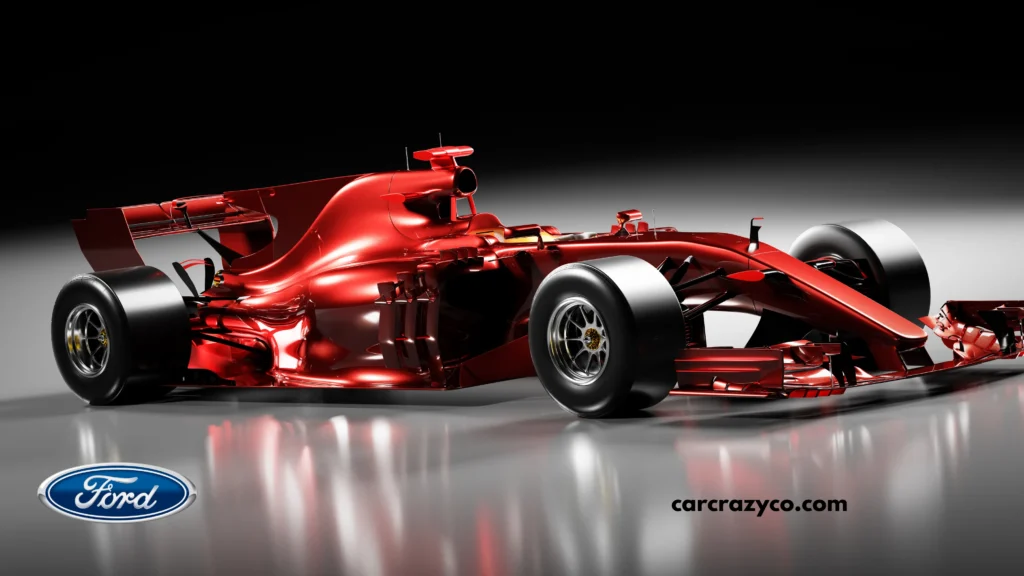Ford is a name that instantly brings to mind powerful cars and innovative engines, but many wonder about its role in the thrilling world of Formula One racing. Did Ford ever take a direct part in the F1 circus, or has its influence been more behind the scenes?
This question is important not just for racing fans but also for anyone curious about how major car brands shape motorsports. Ford’s legacy in F1 reflects its passion for speed, technology, and pushing automotive limits.
By diving into Ford’s history with F1, we uncover a story of partnerships, engine development, and moments that changed racing forever. This post will explore how Ford’s involvement has helped define both the company and the sport.
Ford’s Journey Through Formula One
1. Ford’s Entry into F1 through Cosworth
Ford never ran its own F1 team, but its impact came through Cosworth, a British engineering firm. Ford funded Cosworth’s development of the DFV (Double Four Valve) engine in 1967, which became one of the most successful F1 engines ever.
The Ford-Cosworth DFV powered many winning cars and helped multiple teams dominate the sport throughout the 1970s and beyond.
This engine symbolized Ford’s indirect but powerful influence on F1, powering legends like Lotus, McLaren, and Williams.
2. The Power of the Ford-Cosworth DFV Engine
The DFV was revolutionary because it was lightweight, reliable, and powerful. It gave smaller teams access to competitive engines, leveling the playing field in F1.
Its success transformed F1, with over 150 wins and multiple championships powered by Ford technology.
Ford’s backing of this engine marked a turning point, showcasing how innovation can come from collaboration rather than direct team ownership.

3. Ford’s Official F1 Team and Later Involvement
Though Ford never owned an F1 team, it had moments of deeper involvement. The Ford Works Team briefly entered F1 in the early 1970s, but it was short-lived.
Later, Ford supplied engines under different partnerships, such as with Jaguar Racing from 2000 to 2004, before selling Jaguar to Red Bull.
These efforts show Ford’s ongoing interest in the sport, even if it never became a full-time F1 constructor.
4. Ford’s Influence Beyond Engines
Beyond engines, Ford’s engineering and motorsport divisions helped develop technology that trickled down to road cars and racing.
Ford’s focus on performance and innovation in motorsport helped it build its brand identity around speed and reliability.
Even today, Ford’s racing heritage continues in other series like NASCAR and rallying, proving that motorsport remains a core part of its DNA.
5. Why Ford Matters to F1 Fans Today
Ford’s legacy in F1 is a reminder that influence doesn’t always come from direct ownership or racing teams. It’s about innovation, partnerships, and leaving a lasting impact on the sport.
Fans of F1 and Ford alike can appreciate the company’s role in shaping racing history through cutting-edge engine technology.
Knowing Ford’s connection adds a new layer of appreciation when watching F1 races, reminding us how car giants shape the sport behind the scenes.

Conclusion:
While Ford never owned a full Formula One team, its partnership with Cosworth and role in engine development made it one of the most influential players in F1 history.
Ford’s story in F1 is about innovation, collaboration, and a commitment to motorsport that helped shape the modern era of racing.
Understanding this relationship highlights how companies like Ford drive progress—not just on the streets, but on the world’s fastest tracks.
FAQs:
1. Did Ford ever have an official F1 team?
Ford briefly ran a works team in the early 1970s but mainly influenced F1 through engine partnerships.
2. What was the Ford-Cosworth DFV engine?
A legendary F1 engine funded by Ford, powering many winning teams from the late 1960s through the 1980s.
3. Did Ford supply engines to any F1 teams?
Yes, including partnerships with teams like Lotus, McLaren, Williams, and later Jaguar Racing.
4. Why didn’t Ford run its own F1 team longer?
Ford chose to focus on engine development and partnerships rather than full team ownership, balancing costs and risks.
5. Does Ford still have any involvement in F1?
No direct involvement today, but Ford continues in other motorsports like NASCAR and rally.
6. How did Ford’s F1 involvement impact its road cars?
F1 technology and engineering innovations helped improve Ford’s performance and reliability in consumer vehicles.








